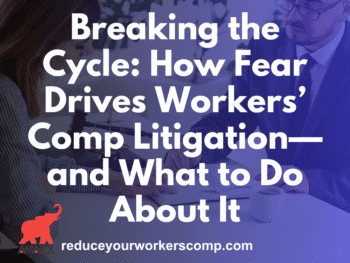How Would You Decide: Mississippi Insurance Guaranty Association Is Not Entitled To Credit a Recovery Under Employer’s Uninsured Motorist Coverage Against Workers’ Compensation Benefits Owed to Injured Worker.
Here’s What Happened:
Blakeney, an employee of a local housing authority, sustained injuries in a work-related car accident. She initially received workers’ compensation payments for her injuries. After the employer’s workers’ compensation insurance company became insolvent and filed bankruptcy, Blakeney’s workers’ compensation payments became the responsibility of the Mississippi Insurance Guaranty Association (MIGA). MIGA subsequently sought to suspend benefit payments, contending that it was entitled to a credit totaling $70,000, the amount Blakeney had received from two solvent insurance companies: $10,000 from the insurance company covering the third-party driver who was at fault (the policy’s full value), and $60,000 carrier providing liability and uninsured motorist coverage for the employer. An administrative law judge determined that MIGA was entitled to the full setoff of $70,000, minus Blakeney’s costs and expenses incurred in recovering the funds, but the Workers’ Compensation Commission, applying the provisions of Miss. Code Ann. § 71-3-71, determined that MIGA was only entitled to credit for the $10,000, minus costs and expenses, paid by the third-party tortfeasor’s insurance company. A county circuit court affirmed.
Here’s What The Court Decided:
In Mississippi Ins. Guar. v. Blakeney, 2009 Miss. App. LEXIS 870 (Dec. 8, 2009), the Court of Appeals of Mississippi also affirmed. While MIGA claimed that it was entitled to a credit for any funds “paid by solvent insurance companies” on behalf of the third party tortfeasor and on behalf of the employer under the uninsured motorist provision of the employer’s policy, the appellate court said that clear precedent pointed in another direction. The court indicated that when MIGA undertook the obligations of the insolvent workers’ compensation insurer, it, indeed, “stepped into the shoes” of the insolvent carrier. While Miss. Code Ann. § 71-3-71 gave a carrier and, therefore, MIGA the right to intervene in a related lawsuit and prevented a covered employee from gaining a “double” recovery if the employee received benefits from a third party, such was not the case with regard to uninsured motorist coverage provisions. Under the explicit holding of the state supreme court in Cossitt v. Nationwide Mutual Insurance Co., 551 So. 2d 879 (Miss. 1989), a workers’ compensation carrier had no claim to uninsured motorist benefits received by an injured employee. MIGA enjoyed no rights greater than a workers’ compensation carrier.
See generally Larson’s Workers’ Compensation Law, §§ 13.04, 13.05, 22.02, 22.03.
Tom Robinson, J.D. is the primary upkeep writer for Larson’s Workers’ Compensation Law (LexisNexis) and Larson’s Workers’ Compensation, Desk Edition (LexisNexis). He is a contributing writer for California Compensation Cases (LexisNexis) and Benefits Review Board – Longshore Reporter(LexisNexis), and is a contributing author to New York Workers’ Compensation Handbook(LexisNexis). Robinson is an authority in the area of workers’ compensation and we are happy to have him as a Guest Contributor to Workers’ Comp Kit Blog. Tom can be reached at: compwriter@gmail.com.
http://law.lexisnexis.com/practiceareas/Workers-Compensation
“FRAUD PREVENTION” PODCAST click here: http://www.workerscompkit.com/gallagher/mp3
By: Private investigator with 25 years experience.
WC Calculator: http://www.reduceyourworkerscomp.com/calculator.php
Do not use this information without independent verification. All state laws vary. You should consult with your insurance broker about workers’ comp issues.
©2009 Amaxx Risk Solutions, Inc. All rights reserved under International Copyright Law. If you would like permission to reprint this material, contact Info@WorkersCompKit.com



























